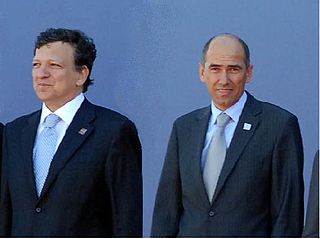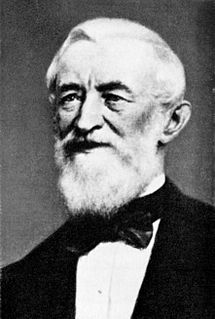 W
WDecommunization is the process of dismantling the legacies of communist state establishments, culture, and psychology in the post-communist countries. It is sometimes referred to as political cleansing. The term is most commonly applied to the former countries of the Eastern Bloc and the Soviet Union to describe a number of legal and social changes during their periods of postcommunism after the Cold War.
 W
WA referendum on creating the post of President of Russia was held in the Russian Federal Republic on 17 March 1991. The referendum was held alongside a referendum of the preservation of USSR. Prior to the referendum, the Russian head of state was the Chairman of the Supreme Soviet of the Russian SFSR, elected by the Congress of People's Deputies of the Russian SFSR. With 71.4% of voters approving the proposal, the post of President of the Russian SFSR was introduced, and two months later Boris Yeltsin was elected as the first president.
 W
WBans on communist symbols were introduced or suggested in a number of countries as part of their policies of decommunization.
 W
WThe Commission for the Study and Evaluation of the Communist Totalitarian Regime of the Republic of Moldova is a commission instituted in Moldova by Acting President of Moldova Mihai Ghimpu to investigate the Moldavian SSR, the state which administered the country as a Soviet Socialist Republic from 1940 to 1991, and provide a comprehensive report with the purpose of condemnation of Communism as experienced by Moldovan people.
 W
WThe Croatian War of Independence was fought from 1991 to 1995 between Croat forces loyal to the Government of Croatia—which had declared independence from the Socialist Federal Republic of Yugoslavia (SFRY)—and the Serb-controlled Yugoslav People's Army (JNA) and local Serb forces, with the JNA ending its combat operations in Croatia by 1992. In Croatia, the war is primarily referred to as the "Homeland War" and also as the "Greater-Serbian Aggression". In Serbian sources, "War in Croatia" and (rarely) "War in Krajina" are used.
 W
WDecommunization in Russia is the process of dealing with the communist legacies in terms of institutions and personnel that tends towards breaking with the Soviet past. Compared with the efforts of the other former constituents of the Eastern Bloc and the Soviet Union, it has been restricted to half-measures, if conducted at all.
 W
WDecommunization in Ukraine started after the collapse of the Soviet Union. It was formalized in April 2015, when the Ukrainian government approved laws that outlawed communist symbols.
 W
WThe socialist rule in the People's Republic of Hungary came to an end in 1989 by a peaceful transition to a democratic system. After the Hungarian Revolution of 1956 was suppressed by the Soviet forces in 1956, Hungary remained a socialist country. As the Soviet Union weakened at the end of the 1980s, the Eastern bloc disintegrated.
 W
WCrimes Committed by Totalitarian Regimes are reports and proceedings of the European public hearing organised by the Slovenian Presidency of the Council of the European Union and the European Commission. The Hearing was organised in response to the request made by the Justice and Home Affairs Council of the European Union on 19 April 2007.
The fall of Communism in Albania, the last such event in Europe outside the USSR, started in earnest in December 1990 with student demonstrations in the capital, Tirana, although protests had begun earlier that year in other cities such as Shkodra and Kavaja. The Central Committee of the communist Party of Labour of Albania allowed political pluralism on 11 December and the largest opposition party, the Democratic Party, was founded the next day. March 1991 elections left the Party of Labour in power, but a general strike and urban opposition led to the formation of a "stability government" that included non-communists. Albania's former communists were routed in elections in March 1992 amid economic collapse and social unrest, with the Democratic Party winning most seats and its party head, Sali Berisha, becoming president.
 W
WThe Institute for the Investigation of Communist Crimes in Romania is a government-sponsored organization whose mission is to investigate the crimes and abuses conducted while Romania was under communist rule, prior to December 1989. Following the Romanian Revolution, Romania’s Communist government was overthrown and a democratic president was elected in May 1990.
 W
WThe Institute for the Study of Totalitarian Regimes is a Czech government agency and research institute. It was founded by the Czech government in 2007 and is situated at Siwiecova street, Prague-Žižkov.
 W
WHermann Kreutzer was a German political activist (SPD). As a teenager he was caught distributing anti-government leaflets, and spent the final months of the National Socialist period serving the first part of a ten year prison sentence. Towards the end of 1945 he entered mainstream politics in his home region, which was by now being administered as part of the Soviet occupation zone. He campaigned against the contentious party merger between the Communist Party and the Social Democratic Party. A further lengthy period in government detention followed. In 1956, following high level government negotiations, he was released and unceremoniously transferred from East to West Berlin.
 W
WLustration is the purge of government officials in Central and Eastern Europe. Various forms of lustration were employed in post-communist Europe and more recently in Ukraine.
 W
WLustration in Ukraine refers to the removal from public office of civil servants who served under Ukrainian President Viktor Yanukovych. This measure was initiated under president Petro Poroshenko, after Yanukovich was deposed in the 2014 Ukrainian Revolution. This lustration also applies to civil servants who were active in the Communist Party of the Soviet Union prior to 1991. A 2019 proposal by the newly elected president Volodymyr Zelensky would expand the lustration to the officials who served under Poroshenko.
 W
WThe Mongolian Revolution of 1990 was a peaceful democratic revolution that started with demonstrations and hunger strikes to overthrow the Mongolian People's Republic and eventually moved towards the democratic present day Mongolia and the writing of the new constitution. It was spearheaded by mostly younger people demonstrating on Sükhbaatar Square in the capital Ulaanbaatar. It ended with the Communist government resigning without bloodshed. Some of the main organizers were Davaadorjiin Ganbold, Tsakhiagiin Elbegdorj, Sanjaasürengiin Zorig, Erdeniin Bat-Üül, Bat-Erdeniin Batbayar, and Dogmidiin Sosorbaram.
 W
WThe Museum of Occupations and Freedom Fights in Vilnius, Lithuania was established in 1992 by order of the Minister of Culture and Education and the President of the Lithuanian Union of Political Prisoners and Deportees. In 1997 it was transferred to the Genocide and Resistance Research Centre of Lithuania. The museum is located in the former KGB headquarters across from the Lukiškės Square; therefore, it is informally referred to as the KGB Museum.
 W
WThe Revolutions of 1989 formed part of a revolutionary wave in the late 1980s and early 1990s that resulted in the end of communist rule in Central and Eastern Europe and beyond. The period is often also called the Fall of Communism and sometimes the Fall of Nations or the Autumn of Nations, a play on the term Spring of Nations that is sometimes used to describe the Revolutions of 1848.
 W
WThe Romanian Revolution was a period of violent civil unrest in Romania during December 1989 as a part of the Revolutions of 1989 that occurred in several countries around the world. The Romanian Revolution started in the city of Timișoara and soon spread throughout the country, ultimately culminating in the show trial and execution of longtime Romanian Communist Party (PCR) General Secretary Nicolae Ceaușescu and his wife Elena, and the end of 42 years of Communist rule in Romania. It was also the last removal of a Marxist–Leninist government in a Warsaw Pact country during the events of 1989, and the only one that violently overthrew a country's leadership and executed its leader.
 W
WThe Singing Revolution is a commonly used name for events that led to the restoration of independence of the Baltic states of Estonia, Latvia, and Lithuania from the Soviet Union at the end of the Cold War. The term was coined by an Estonian activist and artist, Heinz Valk, in an article published a week after 10–11 June 1988, spontaneous mass evening singing demonstrations at the Tallinn Song Festival Grounds. Later, all three countries joined the EU and NATO in 2004.
 W
WThe Family Federation for World Peace and Unification, widely known as the Unification Church, is a new religious movement whose members are called Unificationists and sometimes colloquially "Moonies". It was officially founded on 1 May 1954 under the name Holy Spirit Association for the Unification of World Christianity (HSA-UWC) in Seoul, South Korea by Sun Myung Moon (1920–2012), a Korean Messiah claimant also known for his business ventures and engagement in social and political causes.